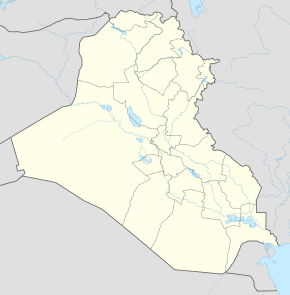Operation Vigilant Resolve
![]() Omar Hadid (Islamist commander)
Omar Hadid (Islamist commander)
Abu Anas al-Shami
Abdullah al-Janabi (Islamist preacher) Abu Ayyub al-Masri![]()
The First Battle of Fallujah, also known as Operation Vigilant Resolve, was an operation to root out extremist elements of Fallujah as well as an attempt to apprehend the perpetrators of the killing of four U.S. contractors in April 2004.
The chief catalyst for the operation was the highly publicized killing and mutilation of four Blackwater USA private military contractors, and the killings of five American soldiers in Habbaniyah a few days earlier.
The battle polarized public opinion within Iraq.
Fallujah had generally benefited economically under Saddam Hussein, and many residents were employed as military and intelligence officers by his administration. However, there was little sympathy for him following the collapse of his government, which many residents considered oppressive. The city was one of the most religious and culturally traditional areas in Iraq.
Following the collapse of the Ba'ath infrastructure in early 2003, local residents had elected a town council led by Taha Bidaywi Hamed, who kept the city from falling into the control of looters and common criminals. The town council and Hamed were both considered to be nominally pro-American, and their election originally meant that the United States had decided that the city was unlikely to become a hotbed of activity, and didn't require any immediate troop presence. This led to the United States committing few troops to Fallujah from the start.
...
Wikipedia


